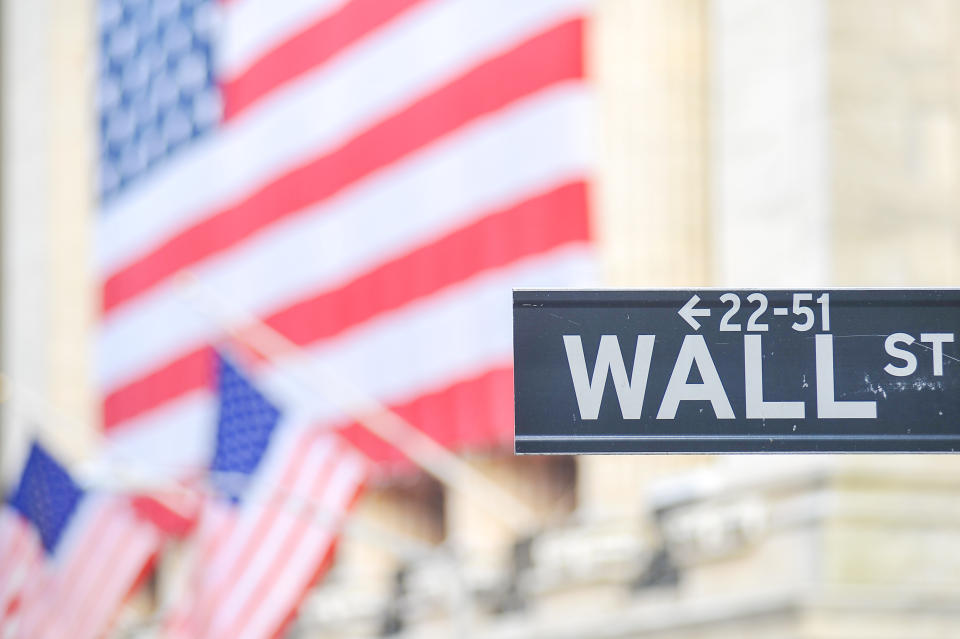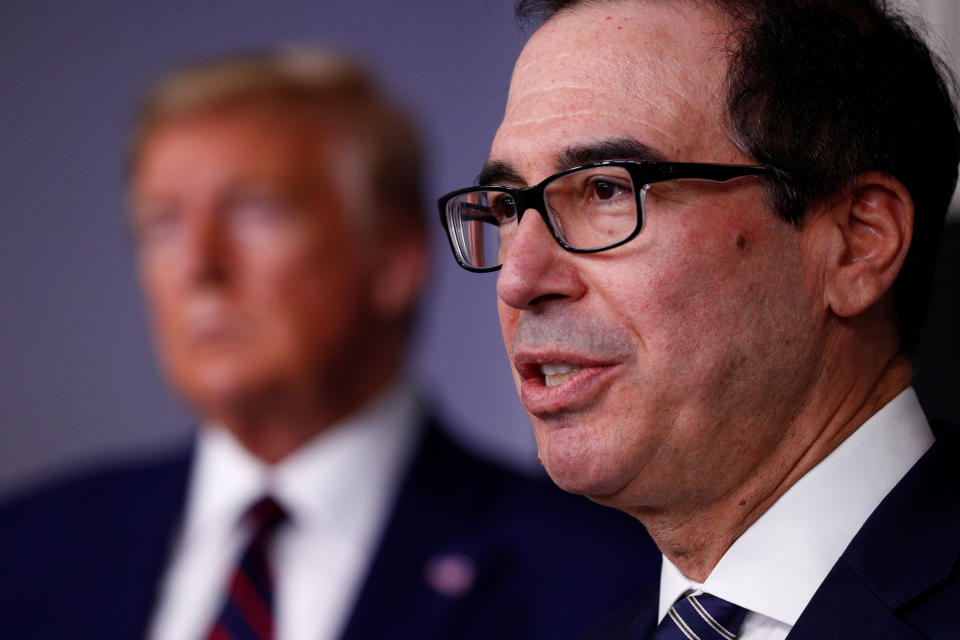Bail out workers, not shareholders
The past decade has been good to corporate shareholders. Last year marked the longest bull market in history, with the S&P 500 rising 330% from its March 2009 low. And while those gains have taken a significant hit as a result of the COVID-19 crisis, shareholders had already locked in trillions in payouts from the market’s strong growth.
Indeed, in just the past three years, companies in the S&P 500 paid out dividends and buybacks (where a company uses its cash to purchase shares from shareholders) of over $3.5 trillion. Given the enormous challenges confronting many corporate sectors, it’s appropriate that shareholders, including executives, start giving back.

The stimulus bill signed into law by President Donald Trump last week includes about $500 billion in aid for big corporations impacted by COVID-19. Most of this money will be leveraged by the Federal Reserve, working with the U.S. Treasury Department, to support about $4 trillion in lending.
The biggest threat to our economy
The bill wisely bans buybacks and dividends for any large company receiving loans under the bill, and limits out-sized executive compensation as well, until a year after the loans are repaid. These restrictions should not be interpreted as punitive measures or statements against shareholder distributions and executive bonuses, which are appropriate at some level in normal times.
Rather, they reflect a common sense recognition that if a company needs taxpayer help to stay afloat, it should be expected to dedicate all of its own cash resources to remaining operational and keeping its workforce employed. The biggest threat to our economy is not a temporary suspension of shareholder payouts. It is a precipitous drop in consumer demand — the inevitable consequence of massive layoffs by companies and their suppliers if we don’t stanch the hemorrhaging in our labor market. Indeed, the St. Louis Federal Reserve bank has suggested unemployment in the second quarter as high as 32%.
Now is the time for corporate America to show its better side
Sadly, we are already reading press reports of furious lobbying by corporate interests to persuade Treasury Secretary Steve Mnuchin to grant exceptions to these sensible restrictions. He should resist and they should desist. Companies needing government help should be singularly focused on how they can support their employees and maintain at least rudimentary operations until the economy starts to recover. They have an opportunity to show their critics that they are not slaves to short-term shareholder returns, but rather understand that the long term survival of their companies — and the broader economy — depends on shared sacrifice by all.

It is true that some middle-income retirees rely on dividend income for support, though they are a small minority. Over 80% of all stocks are owned by the wealthiest 10% of households (and that includes 401ks and other retirements plans.) And of course, most companies — at least at this point — do not need government bailouts and will continue dividend payments to the extent their earnings and cash flows allow.
Nonetheless, to help middle-income shareholders of bailed out companies, Secretary Mnuchin might consider permitting payment of dividends in kind, whereby a company distributes additional shares in lieu of cash payments. These can be kept or sold on the secondary market by shareholders needing cash. It would be even better if bailed out companies decided to also make equity awards to company employees, which could provide them with tremendous future profits when undervalued share prices rise again. Importantly, unlike cash payments, distributions of common stock to shareholders and employees would not negatively impact a company’s liquidity or capital strength.
Now is the time for Corporate America to show its better side. Some impacted companies have already suspended or dramatically cut executive pay, while making yeoman’s efforts to pay wages and benefits to idled workers. Others are waving at the masses from their yachts, or decrying strings on their bailout funds. Cynics are already predicting corporate abuse and exploitation of the massive support our government is providing big businesses to help our economy. This public reaction is not surprising, given the uneven benefits which accrued from the 2008/2009 bailouts, when banks rebounded quickly while working families suffered for years from lost jobs, lost homes, and sluggish wage growth. Now is the time for corporate leaders to defy their critics. Please do it the right way this time around. The costs of this terrible crisis should not fall disproportionately on workers. By making shared sacrifice, we can help ensure that the recovery, when it comes, will also be shared by all.
Sheila Bair is the former Chair of the FDIC and has held senior appointments in both Republican and Democrat Administrations. She currently serves as a board member or advisor to a several companies and is a founding board member of the Volcker Alliance, a nonprofit established to rebuild trust in government.
Read more:
The Fed needs to bail out the real economy — not big banks
Mike Bloomberg has done an about-face on Wall Street reform
Low-income Americans need more wealth, not more debt
Why student loan forgiveness should target graduates who need it the most
Why the Fed should oversee Facebook’s Libra
How regulators can stop leveraged lending from becoming the new subprime
The $1.4 trillion student loan market faces a huge issue — transparency
Follow Yahoo Finance on Twitter, Facebook, Instagram, Flipboard, SmartNews, LinkedIn, YouTube, and reddit.